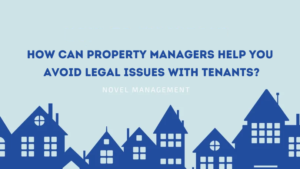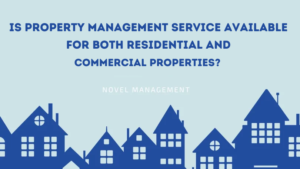Noise complaints are a common issue among renters in Miami. With the city’s bustling nightlife, crowded beaches, and lively streets, it’s no surprise that noise can be an ongoing problem for those living in rental properties. Whether you’re a landlord or a tenant, dealing with noise complaints can be challenging and stressful. However, there are steps that you can take to handle these situations effectively and maintain good relationships with your neighbors and fellow tenants.
In this guide, we will discuss key tips on how to handle noise complaints in Miami rentals. We will cover the different types of noise complaints, how to address them as a landlord or a tenant, and the legal implications of noise complaints in Miami. By following these guidelines, you can ensure a peaceful living environment for yourself and others in your community.

What is Considered a Noise Complaint?
A noise complaint is a grievance raised by a tenant or neighbor about excessive and disruptive noise coming from a rental property. Miami has specific guidelines on what can be considered as “excessive” noise, which are outlined in the city’s Noise Control Ordinance. This ordinance states that “no person shall engage in loud music or any other activity in such a manner as to create an unreasonable disturbance or vibration perceptible beyond his or her property line.”
Some common types of noise complaints in Miami rentals include loud parties, barking dogs, construction work during prohibited hours, and excessively loud music or TV. It’s important to note that what may be considered as excessive noise can vary depending on the time of day and location. For example, a loud party at 2 PM in a commercial area may not be an issue, but the same party at 2 AM in a residential neighborhood could be deemed as disruptive.
As a landlord or tenant, it’s essential to understand what is considered a noise complaint and to take necessary measures to avoid them. Failure to address noise complaints can result in legal repercussions and strained relationships with neighbors and fellow tenants. Let’s explore how landlords and tenants can handle these situations effectively.
How Landlords Can Address Noise Complaints
As a landlord, it’s your responsibility to ensure that your rental properties are peaceful and livable for all tenants. When faced with a noise complaint, the first step is to communicate with the affected tenant and try to identify the source of the noise. If the complaint is valid, take prompt action to rectify the issue by reminding the tenant of quiet hours, enforcing house rules, or providing soundproofing solutions.
If the issue persists despite your efforts, you may need to get involved directly by speaking with the noisy tenant or issuing a warning letter. In severe cases, landlords may need to consider evicting the tenant if they continue to violate noise ordinances. It’s crucial to document all steps taken and maintain open communication with the complaining party.
Landlords also have a responsibility to educate tenants on noise control measures when they move in. This can include providing information on quiet hours, soundproofing techniques, and respecting neighbors’ right to peaceful enjoyment of their homes. By setting clear expectations from the start, you can prevent noise complaints before they even arise.

How Tenants Can Address Noise Complaints
As a tenant, it’s important to be respectful of your neighbors and adhere to noise regulations set by your landlord or the city. If you receive a noise complaint, the first step is to evaluate the situation and take necessary measures to reduce the noise level. This could include turning down music or TV volume, keeping doors and windows closed, or using soundproofing techniques.
If the issue persists despite your efforts, it’s best to communicate with your landlord immediately and address any underlying issues that may be causing excessive noise. It’s also important to listen to your neighbors’ concerns and work towards finding a mutually agreeable solution. As a tenant, you have a right to peaceful enjoyment of your home, but it’s also important to be considerate of those around you.
In severe cases, tenants may need to seek legal assistance or mediation to resolve noise complaints. However, it’s always best to try and resolve the issue through open communication and cooperation first.
Legal Implications of Noise Complaints in Miami
Failure to address noise complaints can result in legal consequences for both landlords and tenants. According to the city’s Noise Control Ordinance, violators can face fines ranging from $100 to $1,000 and potential criminal charges if they continue to violate noise ordinances.
Landlords can also face liability for not taking necessary measures to address noise complaints if they result in physical or emotional harm to tenants. This could include claims of nuisance, breach of quiet enjoyment, and negligence.
Tenants who repeatedly violate noise ordinances can also face eviction or lease termination. Additionally, having a record of noise complaints can make it challenging to find new rental properties in the future.
To avoid legal repercussions, it’s crucial for both landlords and tenants to take noise complaints seriously and handle them promptly and effectively.
Why Maintaining Good Relationships is Important
In addition to avoiding legal consequences, handling noise complaints effectively is crucial for maintaining good relationships with neighbors and fellow tenants. Living in close proximity to others requires mutual respect and understanding. Failure to address noise complaints can lead to strained relationships, animosity, and a negative living environment.
As a landlord, it’s essential to maintain open communication with your tenants and address any concerns they may have. By showing that you are actively working towards resolving the issue, you can build trust and maintain a positive relationship with your tenants.
Tenants should also strive to be considerate of their neighbors and make efforts to address noise complaints promptly. This can help foster a sense of community and create a harmonious living environment for all.
Also, maintaining good relationships with neighbors can create a safer and more supportive community. In times of need, having a positive relationship with those around you can lead to helpful and cooperative interactions.

Why A Property Management Company Can Help
Managing noise complaints can be a challenging and time-consuming task for both landlords and tenants, especially if the issue persists. This is where a property management company can help.
A property management company has experience handling various types of tenant issues, including noise complaints. They can act as a neutral third party and work towards finding a solution that satisfies all parties involved. Property managers also have resources and expertise to address noise issues effectively, such as providing soundproofing solutions or enforcing house rules.
Additionally, by working with a property management company, landlords can save time and stress associated with resolving noise complaints. This allows them to focus on other aspects of their rental property while ensuring that all tenants have a peaceful and livable environment.
For tenants, having a property management company as a point of contact can provide peace of mind knowing that their concerns will be taken seriously and addressed promptly. It also eliminates the need for direct communication with the landlord, which can sometimes lead to tense situations.
Does Your Rental Property Have a Noise Control Plan?
As a landlord, it’s important to have a noise control plan in place to address potential noise issues. This can include setting clear expectations for tenants regarding noise regulations and providing information on how they can reduce noise levels.
Some strategies that landlords can incorporate into their noise control plan include soundproofing common areas, implementing quiet hours, and enforcing consequences for repeated noise violations.
It’s also essential to educate tenants on the importance of being considerate of their neighbors and respecting their right to peaceful enjoyment of their homes. By including language about noise control measures in the lease agreement, landlords can set clear expectations from the start.
In some cases, it may also be beneficial to conduct regular inspections of the property to check for any noise disturbances and address them proactively.
Having a noise control plan in place can help prevent excessive noise issues and create a more harmonious living environment for all tenants. It also shows that the landlord takes tenant concerns seriously and is committed to maintaining a high standard of living in their rental property.
Tips for Dealing with Noise Complaints
Dealing with noise complaints can be a delicate and challenging task, but there are some tips that both landlords and tenants can follow to handle them effectively. Here are a few suggestions:
- Communicate openly and respectfully: When addressing noise complaints, it’s essential to communicate calmly and respectfully with the other party. Avoid getting defensive or confrontational, as this can escalate the situation. Instead, listen to their concerns and try to find a mutually beneficial solution.
- Document the issue: It’s crucial to keep a record of noise complaints and any actions taken to address them. This can be useful in the event of legal disputes or repeated issues with the same tenant.
- Consider mediation: If communication between parties becomes difficult, consider using a neutral third party mediator to help facilitate a resolution.
- Be proactive: Landlords should regularly check for potential noise disturbances in their rental property and address them proactively before they become major issues.
- Seek professional help if needed: In some cases, it may be necessary to seek professional help, such as hiring a sound engineer or installing soundproofing materials, to address noise complaints effectively.
By following these tips and working together, landlords and tenants can handle noise complaints in a timely and productive manner, maintaining good relationships and creating a peaceful living environment for all residents.
FAQs
What is the noise ordinance in Miami-Dade and how does it affect rentals?
The noise ordinance in Miami-Dade sets limits on acceptable noise levels to ensure a peaceful environment. This affects rentals by requiring tenants and landlords to ensure that noises within the apartment do not disturb neighbors, especially during nighttime hours.
How should a landlord handle a noise complaint in a Miami apartment?
When handling a noise complaint in a Miami apartment, landlords should follow up promptly by first verifying the complaint. They should then advise the tenant responsible for the noises to comply with the Miami-Dade noise ordinance and issue a formal notice if necessary.
What steps should tenants take if they hear excessive noises in their Miami rental?
If tenants hear excessive noises in their Miami rental, they should first try to speak directly with the noisy neighbor to resolve the issue. If the problem persists, they should document the noises and notify their landlord or property management to suggest appropriate actions.
How can landlords follow up on repeated noise complaints in Miami-Dade rentals?
Landlords should follow up on repeated noise complaints by keeping a record of all complaints and issuing formal notices to the tenants responsible for the noises. They may also suggest implementing soundproofing measures or involving local authorities if the noise ordinance violations continue.
What advice can property managers give to tenants regarding noise issues in Miami apartments?
Property managers can advise tenants to be mindful of the noise ordinance and consider their neighbors when making noises. They can also suggest solutions like using area rugs to dampen sound, avoiding loud activities during quiet hours, and communicating politely with neighbors if noise issues arise.
Conclusion
In conclusion, addressing noise complaints effectively is crucial for maintaining good relationships and creating a harmonious living environment for all tenants. As landlords and tenants, it’s important to communicate openly and respectfully, follow noise control measures, and be proactive in dealing with potential noise issues.
Seeking professional help or working with a property management company can also be beneficial in resolving noise complaints. By following these tips and strategies, both landlords and tenants can work towards a peaceful and enjoyable living experience for all parties involved.
Learn How to Handle Noise Complaints in Miami Rentals with Novel Management. Enhance your property management with our premier services. Reach out today and see the impactful difference we can make!




